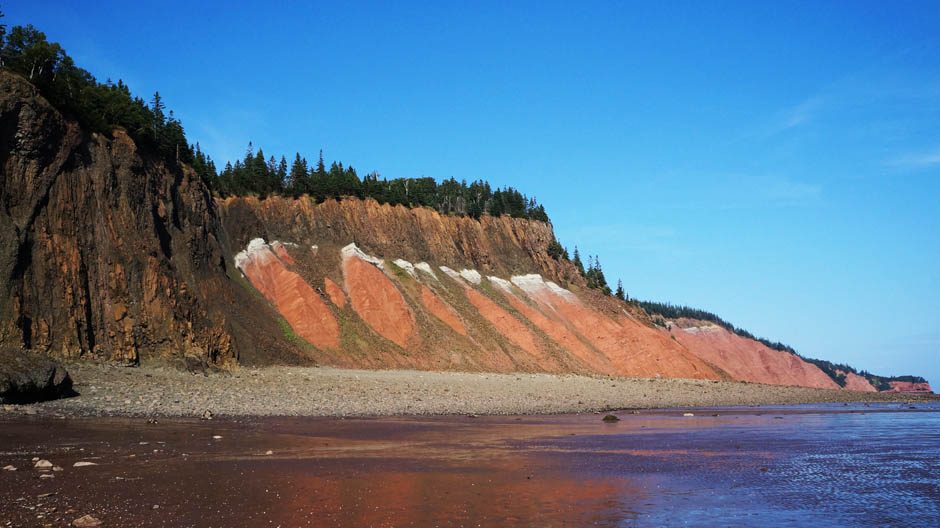To:
The Honorable Premier, Stephen McNeil
The Honorable Minister of Lands and Forestry, Derek Mombourquette
The Honorable Minister of the Environment, Gordon Wilson
The Honorable Leader of the Opposition, Tim Houston
CC: The Honorable Member, Lena Metlege Diab
Auditor General, Terry Spicer
My name is Shanni Bale. I am a resident of Halifax (Armdale), and I hold a master’s degree in landscape ecology from Dalhousie University, where one of my key specializations was habitat connectivity. I have also published peer-reviewed research related to the conservation of endangered bird species in this province. I am writing you because it has come to my attention that Irving and WestFor are slated to clear-cut crown forests near New France, Digby, in or very near the Southwest Nova Biosphere Reserve today (Monday, October 26th, 2020) and later this week. These are forests which comprise critical breeding & feeding habitat and provide important habitat connectivity for many at-risk species, including the American Marten, the Canada warbler, and mainland moose, of which there are estimated to be less than 1000 left in this province.
We are in the middle of a mass extinction, in which half of the species presently on earth are likely to be gone by 2050, and one million of those within the next few years. There is a consensus among ecologists that the single biggest driver of species’ extinctions is habitat fragmentation and loss. To boot, climate change is here… not 20 or 50 years from now… Now. Today. This 2020 has been the worst year for a litany of natural disasters, breaking or even shattering previous historical records for hurricanes, wildfires, flooding, and heatwaves. What’s more, according to the UN, there is now a climate-related disaster somewhere in the world every week. Every. Single. Week. Acadian forests comprise an important carbon sink. Large patches of uncompromised forest also increase landscape resilience against climate change.
Clearcutting during twin climate & ecological emergencies is madness. It is also illegal according to your own laws.
Just this year, the Nova Scotia Supreme Court has ruled that the provincial government has demonstrated “a chronic, systematic failure to implement action required under the Endangered Species Act” and ordered the Department of Lands and Forestry to fulfil its legal obligations to this law. However, the latest insult in New France (not to mention the complete failure to implement the much touted Lahey Report) suggests that, rather than abide by the courts and science, this government remains committed to the status quo… full speed ahead, straight off a cliff.
That it is left up to we citizens to beg our government to follow its own laws is embarrassing and sad. But that’s where we’re at. So, I implore you, gentlemen. Prove me wrong. Stop the clearcutting.
Sincere regards,
Shanni Bale
Nov 26, 2020
Dear Ms. Bale:
As Minister of Lands and Forestry, the Premier has asked that I respond to your email of October 26, 2020, concerning Crown land harvesting.
Government continues to be committed to adopting a model that protects ecosystems and biodiversity, supports economic growth, keeps our forest healthy and sustainable, and to fully implement ecological forestry on Crown lands in Nova Scotia. We can assure you that even during these challenging times we all face, the department continues to focus our priorities and resources on the recommendations from Professor Lahey’s Independent Review of Forest Practices in Nova Scotia.
There have already been significant changes in harvest practices on Crown lands since we introduced the Interim Retention Guide in December 2018. The Interim Retention Guide has increased the retention of live trees in harvests where the Forest Management Guide prescribed clearcuts until a new Forest Management Guide is ready. As a result of the retention, many of the harvest methods being used on Crown land today will not result in clearcuts or in even-aged stands.
A number of companies and organizations have agreements to manage Crown lands in Nova Scotia. The specific harvest areas mentioned in Digby County are under the agreement with WestFor Management Inc. As with all these licenses, it is the responsibility of the licensee (WestFor) to carry out activities on Crown lands, including harvesting, to meet all provincial requirements. They decide on the contractors they need to conduct their forest operations. The softwood and hardwood fibre allocation of this timber license is delivered to mills in Nova Scotia. If there is not an adequate market in Nova Scotia for a certain product, they require export permission to send primary wood products from Crown lands outside Nova Scotia. WestFor had export permission for low-grade hardwood pulpwood that expired on September 30, 2020.
Habitat loss is only one of several threats to moose in Nova Scotia. In addition to this, we are currently updating our Recovery Plan to reflect the most current knowledge concerning moose recovery and will be identifying core habitat for consideration as an additional measure to conserve this important species. A number of interacting factors combine to threaten moose in Nova Scotia. These include parasites, climate change, poaching as well as habitat loss. On this point, the Department of Lands and Forestry routinely considers important habitat for moose in all harvesting decisions, including these ones in Digby County. We have mapped moose concentration areas, and where forest harvesting is planned within these areas, additional forest is retained to provide areas for moose shelter. These special management practices for moose have been in place for several years. Staff have visited the Digby County sites and will ensure moose special management practices are being followed. If they are not being followed, the harvests will not be allowed to proceed.
We appreciate the public reporting any evidence or sightings of mainland moose to their local office or to biodiversity@novascotia.ca. This information helps us refine our understanding of moose in ways that improve conservation efforts.
Thank you for your interest in our forests.
Sincerely,
Original signed by
Derek Mombourquette
Minister of Lands and Forestry
c Honourable Stephen MacNeil, Premier
